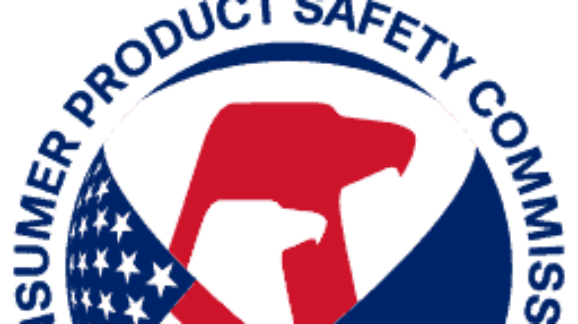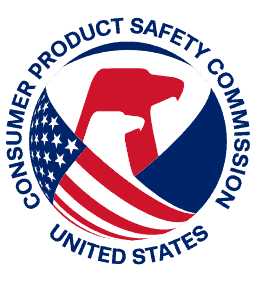Green Activists Make Highly Dubious Claims about CPSC Nominee Nancy Beck

 Left-of-center activists are opposing President Trump’s nomination of toxicologist Nancy Beck to head up the Consumer Product Safety Commission, for highly dubious reasons. They suggest that since she once worked for the American Chemistry Council (ACC), she has willingly engaged in a coverup to allow chemical products on the market that pose unreasonable health risks—particularly cancer.
Left-of-center activists are opposing President Trump’s nomination of toxicologist Nancy Beck to head up the Consumer Product Safety Commission, for highly dubious reasons. They suggest that since she once worked for the American Chemistry Council (ACC), she has willingly engaged in a coverup to allow chemical products on the market that pose unreasonable health risks—particularly cancer.
This assumption is wrongheaded for many reasons, but two main points underscore its absurdity.
First, the overwhelming body of evidence demonstrates that manmade chemicals are not a significant cause of cancer.
Second, the chemical industry’s impact on public health is tremendously positive, extending the lives and well-being of millions upon millions of people for many decades.
Let’s take a closer look at both points.
Regarding the first, green activists have long claimed that increased chemical use is responsible for increased incidences of cancer. Yet, as chemical use has increased, cancer rates have dropped. In 1981, scientists Richard Doll and Richard Peto noted in their landmark study on cancer that rates remained nearly constant in the United States during the 20th century, except for increases caused by smoking. In 1997, scientists Bruce Ames and Lois Swirsky Gold reported that overall cancer rates (incidence not death rates) had declined 16 percent since 1950—excluding lung cancer, which was largely caused by smoking.
And for the past several decades, the National Cancer Institute has issued annual reports on cancer trends that show cancer incidences declining and survival rates rising. One recent report notes that cancer rates dropped 27 percent during the 25 years between 1991 and 2016.
Still, it is true that some chemicals cause cancer when people are exposed to high levels for prolonged periods of time, but trace exposures in the environment or from consumer products are not a significant cause of cancer. You can see details at SafeChemicalPolicy.org.
Accordingly, the industry employs scientists like Beck to help find ways to manage exposure to keep risks low, which enables the public to benefit from chemicals with minimal risks. After all, it is hardly good business to push products that kill your customers!
It is all about balance, which brings us to the second point: The chemical industry has provided massive public health benefits to society. In fact, without the chemical industry, millions of people would be dying from even the most basic infectious diseases that are now controlled with chemical disinfectants. More people would go hungry and many would starve without agrochemicals that help produce an ample food supply. And food lasts longer and is safely transported thanks to sanitary packaging made with chemicals. Without the chemical industry, we would not have the many pharmaceuticals and medical devices that extend and enhance human health and well-being.
It is for these reasons that life expectancy was far lower before modern industrial society emerged than it is today. Worldwide, the average human life span has increased from about 30 years just before the beginning of the 20th century to more than 70 years today, and it continues to rise. In the United States, life expectancy in 1900 was just 47 years, but it reached 78.6 years by 2017.
Consider a few key examples about how mankind has used chemicals to vastly improve the human condition:
- Chlorine. Since local engineers and industry introduced chlorination in the 1880s, waterborne-related deaths in the United States dropped from 75 to 100 deaths per 100,000 people to fewer than 0.1 death per 100,000 annually in 1950. Chlorine is also essential in producing 85 percent of all pharmaceuticals.
- Pharmaceuticals. Thanks to a wide range of manmade chemicals, there is an almost endless list of benefits and lives saved with the use of pharmaceuticals. For example, combination drug therapy reduced AIDS deaths by more than 70 percent from 1994 to 1997. Today, millions of AIDS deaths are prevented every year, and since 1990, AIDS drug treatments have saved nearly 300,000 people .
- Pesticides. Because of high-yield farming, which includes the use of pesticides and other technologies, the world’s food supply has expanded, and hunger has decreased, despite growing populations. And pesticides make it possible to feed more people while farming less land, leaving more land for wildlife.
It is particularly ironic that left-of-center activists make this anti-chemical industry argument now as the chemical industry plays a crucial role in fighting COVID-19. Not only has industry produced the many products needed to fight such infectious agents, many of these companies have generously donated crucial supplies, provided funding, and are developing innovative activities to fight this disease.
The American Chemistry Council, for example, hosts a number of examples on its website, where you can see how much its member companies are doing to fight COVID-19. Here are just a few highlights:
- Dow and Whirlpool donated thousands of units of personal protective equipment (PPE) for health care workers at hospitals in Louisiana, Michigan, and Texas. Among these devices developed specifically to fight COVID-19 is the “powered, air-purifying respirator, or PAPR, which takes the place of a traditional medical mask and visor.”
- Pilot Chemical Company donated 500 gallons of hand sanitizer and 2,500 gloves within the communities where it operates and has 35 of its products listed on the EPA’s Disinfectants for Use Against SARS-CoV-2 list.
- A company called Arkema Inc. “repurposed a production line at its plant in Geneseo, N.Y., to manufacture 10,000 gallons—enough to fill 110,000 12 oz. bottles—of hand sanitizer solution,” which it donated to New York, Pennsylvania, Tennessee, and Texas.
- BASF donated $10,000 to a Freeport, Texas, nonprofit known as ActionsS to help senior citizens cope during the COVID-19 crisis. “COVID-19 has had an enormous impact on ActionS, Inc. We went from serving approximately 5,500 homebound meals a month to averaging more than 3,000 meals a week,” said ActionS’s Executive Director Breah Knape, in a press release. The company donated $365,000 to food banks around the country to help people cope during the crisis.
- Axalta, a company whose usual business is providing protective coating for metal and other products, changed its production to make hand sanitizer and PPE that it is donating to Brazil, where it’s now entering winter, and COVID-19 is on the rise.
- LyondellBasell repurposed its manufacturing to make hundreds of gallons of hand sanitizer for communities in Matagorda and Harrison counties in Texas, and the company also conducted outreach and coordination efforts with other local companies to see how they could help as well. Now that’s valuable community organizing! Not for politics, but for people.
These are just the first few examples of about 60 listed on the ACC site. However, this is just the tip of the iceberg when it comes to the great things chemical companies are doing to protect people from COVID-19.
In a nutshell, people do not go into these businesses to kill people; they go into them to provide solutions. Beck’s role as a scientist at ACC was to ensure balanced policies are based on science and allow people to benefit from the industry’s many products.